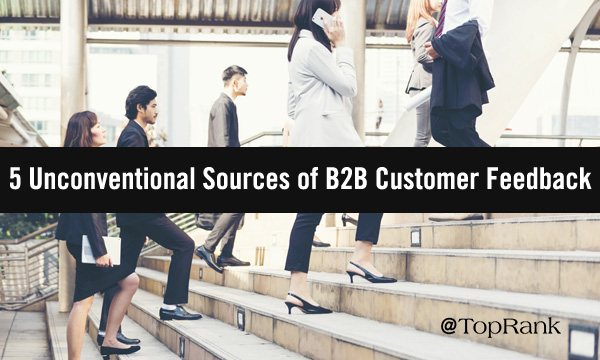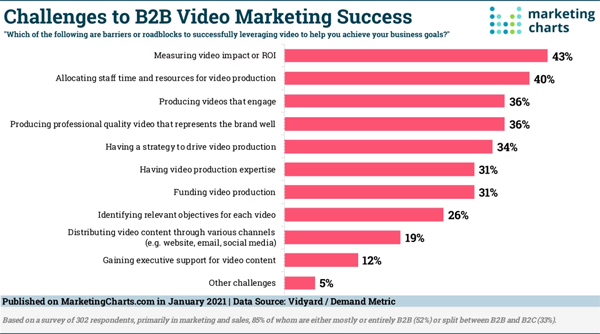
 How the Pandemic Has Affected Account-Based Marketing 42 percent of B2B marketers say that the pandemic has changed their account-based marketing (ABM) business objectives, according to recently-released survey data, with 30 percent noting that their ABM budgets fell due to the global health crisis, while 26 percent saw their ABM spending increase. MarketingProfs Despite In-Housing Trend, Clients Continue To Value Agency Relationships Greater alignment with brand priorities brings increased value to agencies, according to newly-released Forrester report data of interest to digital marketers, which also showed that some 75 percent of brand decision makers were satisfied or very satisfied with their agency rosters. MediaPost Social Media Ad and Video Spend Skyrocketed in Q4 2020 The final quarter of 2020 saw a 92.3 percent year-over-year rise in social media advertising spending in North America, according to recently-released report data, with global increases for the period topping 50 percent. Social Media Today Google Starting To Meet Consumer Demand For Organic Search Overall organic search volume increased by 30.5 percent during the last quarter of 2020 compared to the same quarter a year earlier, with mobile organic search volume rising by 32.7 percent, according to recently-released Merkle report data of interest to online marketers. MediaPost Microsoft earnings rise as pandemic boosts cloud computing, Xbox sales LinkedIn (client) saw a revenue increase of 23 percent during the second quarter of fiscal year 2021, according to earnings release information from parent company Microsoft, led by strong advertising performance on the professional social platform. Reuters Google may not display Web Stories that are teasers Readers are averse to feeling forced to click through from content that relies too heavily on teasers, Google recently said, urging the use of online stories over Web teasers, while also noting that it will show less teaser-based content in its Web Stories within Google Search and Google Discover. Search Engine Land
How the Pandemic Has Affected Account-Based Marketing 42 percent of B2B marketers say that the pandemic has changed their account-based marketing (ABM) business objectives, according to recently-released survey data, with 30 percent noting that their ABM budgets fell due to the global health crisis, while 26 percent saw their ABM spending increase. MarketingProfs Despite In-Housing Trend, Clients Continue To Value Agency Relationships Greater alignment with brand priorities brings increased value to agencies, according to newly-released Forrester report data of interest to digital marketers, which also showed that some 75 percent of brand decision makers were satisfied or very satisfied with their agency rosters. MediaPost Social Media Ad and Video Spend Skyrocketed in Q4 2020 The final quarter of 2020 saw a 92.3 percent year-over-year rise in social media advertising spending in North America, according to recently-released report data, with global increases for the period topping 50 percent. Social Media Today Google Starting To Meet Consumer Demand For Organic Search Overall organic search volume increased by 30.5 percent during the last quarter of 2020 compared to the same quarter a year earlier, with mobile organic search volume rising by 32.7 percent, according to recently-released Merkle report data of interest to online marketers. MediaPost Microsoft earnings rise as pandemic boosts cloud computing, Xbox sales LinkedIn (client) saw a revenue increase of 23 percent during the second quarter of fiscal year 2021, according to earnings release information from parent company Microsoft, led by strong advertising performance on the professional social platform. Reuters Google may not display Web Stories that are teasers Readers are averse to feeling forced to click through from content that relies too heavily on teasers, Google recently said, urging the use of online stories over Web teasers, while also noting that it will show less teaser-based content in its Web Stories within Google Search and Google Discover. Search Engine Land 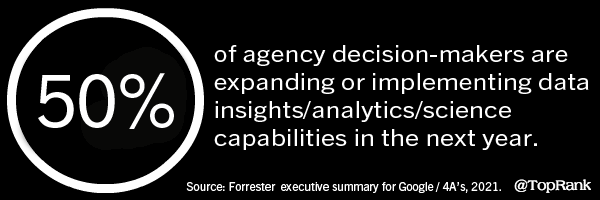 Why social listening guides the marketing strategy for a media management platform [Sprout Social.] Some B2B marketers have failed to see the power of social media marketing as a method for humanizing audience connections, according to Sprout Social chief marketing officer Jamie Gilpin, who recently shared social media listening data from the firm. AdAge Google says it may have found a privacy-friendly substitute to cookies Google has released test data from its Federated Learning of Cohorts (FLoC) browser-tracking cookie replacement technology, which it says achieves at least 95 percent of the conversions per dollar marketers are used to seeing with traditional cookie-based ads, the search giant recently announced. Axios Report: Location-based marketing is increasingly valuable, but data accuracy remains in question 95 percent of global firms use location-based data and services for reaching customers, a year-over-year increase of 10 percent, according to data from the Location Based Marketing Association (LBMA)’s recently-released Global Location Trends report, which also showed that 21 percent of marketers use the technology to increase brand recall. CMO Troubles Measuring Impact Hinder B2B Video Efforts The top barriers marketers face with B2B video marketing include measurement of impact, staff allocation, creating engaging videos, and the production of video content that accurately represents a brand, according to recently-released survey data of interest to digital marketers. MarketingCharts ON THE LIGHTER SIDE:
Why social listening guides the marketing strategy for a media management platform [Sprout Social.] Some B2B marketers have failed to see the power of social media marketing as a method for humanizing audience connections, according to Sprout Social chief marketing officer Jamie Gilpin, who recently shared social media listening data from the firm. AdAge Google says it may have found a privacy-friendly substitute to cookies Google has released test data from its Federated Learning of Cohorts (FLoC) browser-tracking cookie replacement technology, which it says achieves at least 95 percent of the conversions per dollar marketers are used to seeing with traditional cookie-based ads, the search giant recently announced. Axios Report: Location-based marketing is increasingly valuable, but data accuracy remains in question 95 percent of global firms use location-based data and services for reaching customers, a year-over-year increase of 10 percent, according to data from the Location Based Marketing Association (LBMA)’s recently-released Global Location Trends report, which also showed that 21 percent of marketers use the technology to increase brand recall. CMO Troubles Measuring Impact Hinder B2B Video Efforts The top barriers marketers face with B2B video marketing include measurement of impact, staff allocation, creating engaging videos, and the production of video content that accurately represents a brand, according to recently-released survey data of interest to digital marketers. MarketingCharts ON THE LIGHTER SIDE: 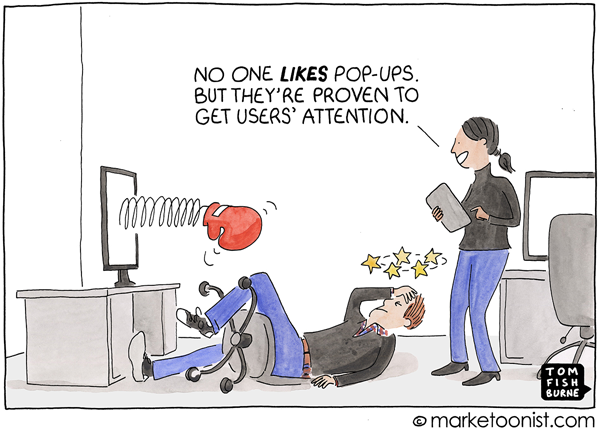 A lighthearted look at “pop-ups and user experience” by Marketoonist Tom Fishburne — Marketoonist A New Way to Trace the History of Sci-Fi’s Made-Up Words — Wired TOPRANK MARKETING & CLIENTS IN THE NEWS:
A lighthearted look at “pop-ups and user experience” by Marketoonist Tom Fishburne — Marketoonist A New Way to Trace the History of Sci-Fi’s Made-Up Words — Wired TOPRANK MARKETING & CLIENTS IN THE NEWS:
- TopRank Marketing — Digital and Real World Influence is About Community — Brian Solis
- LinkedIn (Client) — LinkedIn Sets LinkedIn Spark Virtual Sales Education Event — Adweek
The post B2B Marketing News: Top B2B Video Marketing Challenges, Google Axing Teasers, Changing B2B ABM Objectives, & LinkedIn’s Strong Revenue Growth appeared first on B2B Marketing Blog - TopRank®.


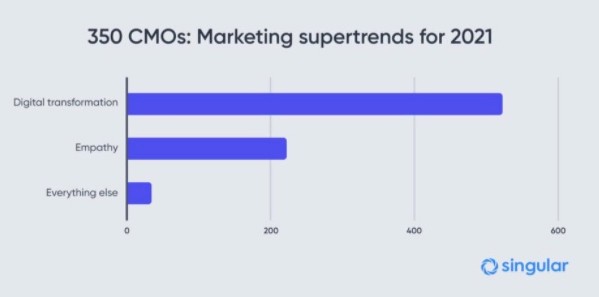 Content marketers are the primary conduits between a business and its potential customers. They help internal stakeholders understand the audience’s needs and values, and they shape external perceptions of how the brand is serving those needs and values. Empathy is instrumental in ensuring these two sides align. To an extent, empathy comes naturally, but it can be honed and strengthened through a curious and analytical mentality. “Experienced marketers are being more strategic about ways to invest in customer experiences to showcase customer satisfaction and retention in addition to complementing customer acquisition strategies,” wrote
Content marketers are the primary conduits between a business and its potential customers. They help internal stakeholders understand the audience’s needs and values, and they shape external perceptions of how the brand is serving those needs and values. Empathy is instrumental in ensuring these two sides align. To an extent, empathy comes naturally, but it can be honed and strengthened through a curious and analytical mentality. “Experienced marketers are being more strategic about ways to invest in customer experiences to showcase customer satisfaction and retention in addition to complementing customer acquisition strategies,” wrote 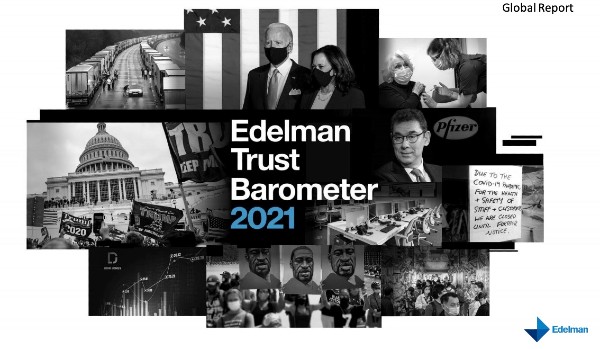
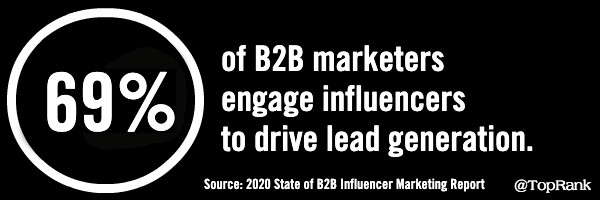
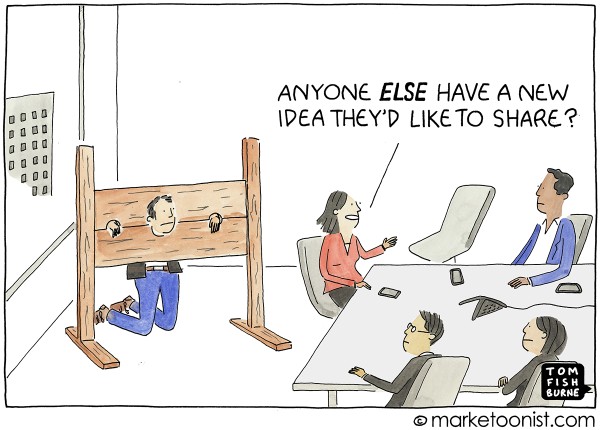
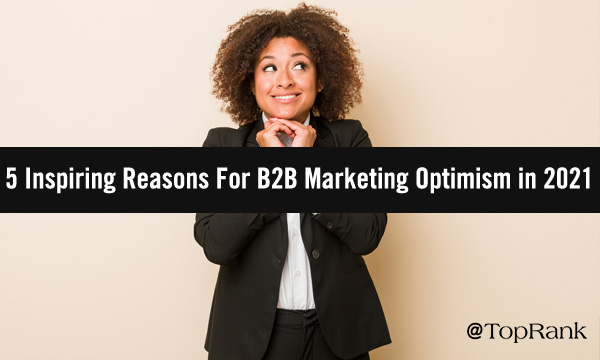
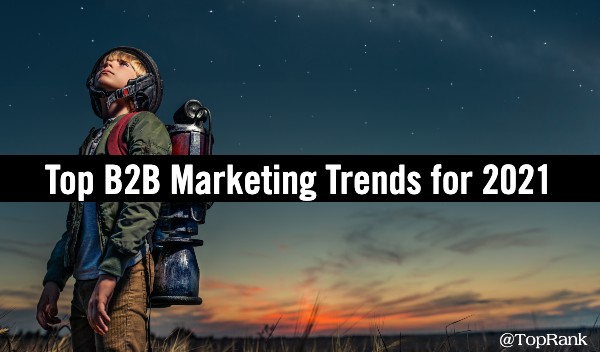
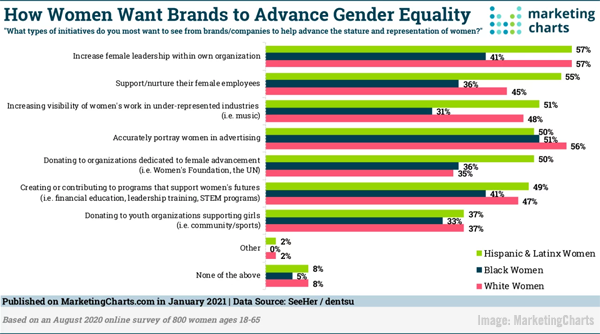
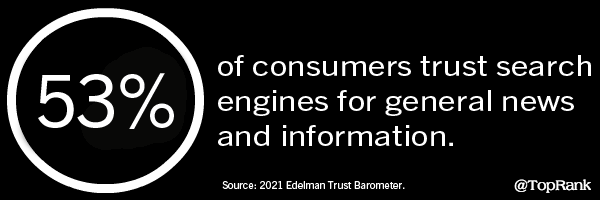 Pinterest A Safe Haven For Brands As They Reportedly Cut Budgets Amidst Turmoil The role of the primarily-positive social media platform Pinterest has undergone change during recent tumultuous times — changes that certain brands are benefiting from, as Pinterest announced fourth quarter usage gains.
Pinterest A Safe Haven For Brands As They Reportedly Cut Budgets Amidst Turmoil The role of the primarily-positive social media platform Pinterest has undergone change during recent tumultuous times — changes that certain brands are benefiting from, as Pinterest announced fourth quarter usage gains. 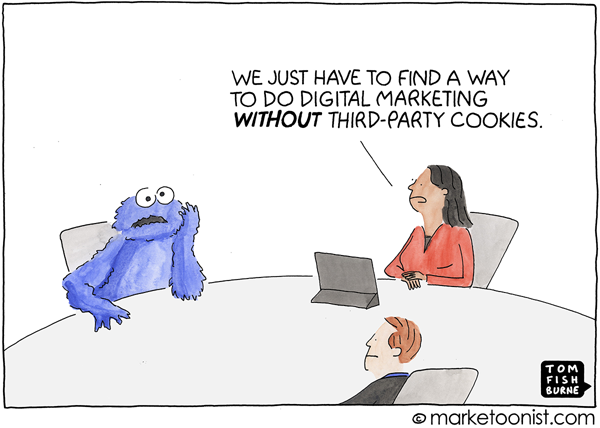 A lighthearted look at “marketing beyond cookies” by Marketoonist Tom Fishburne —
A lighthearted look at “marketing beyond cookies” by Marketoonist Tom Fishburne — 
